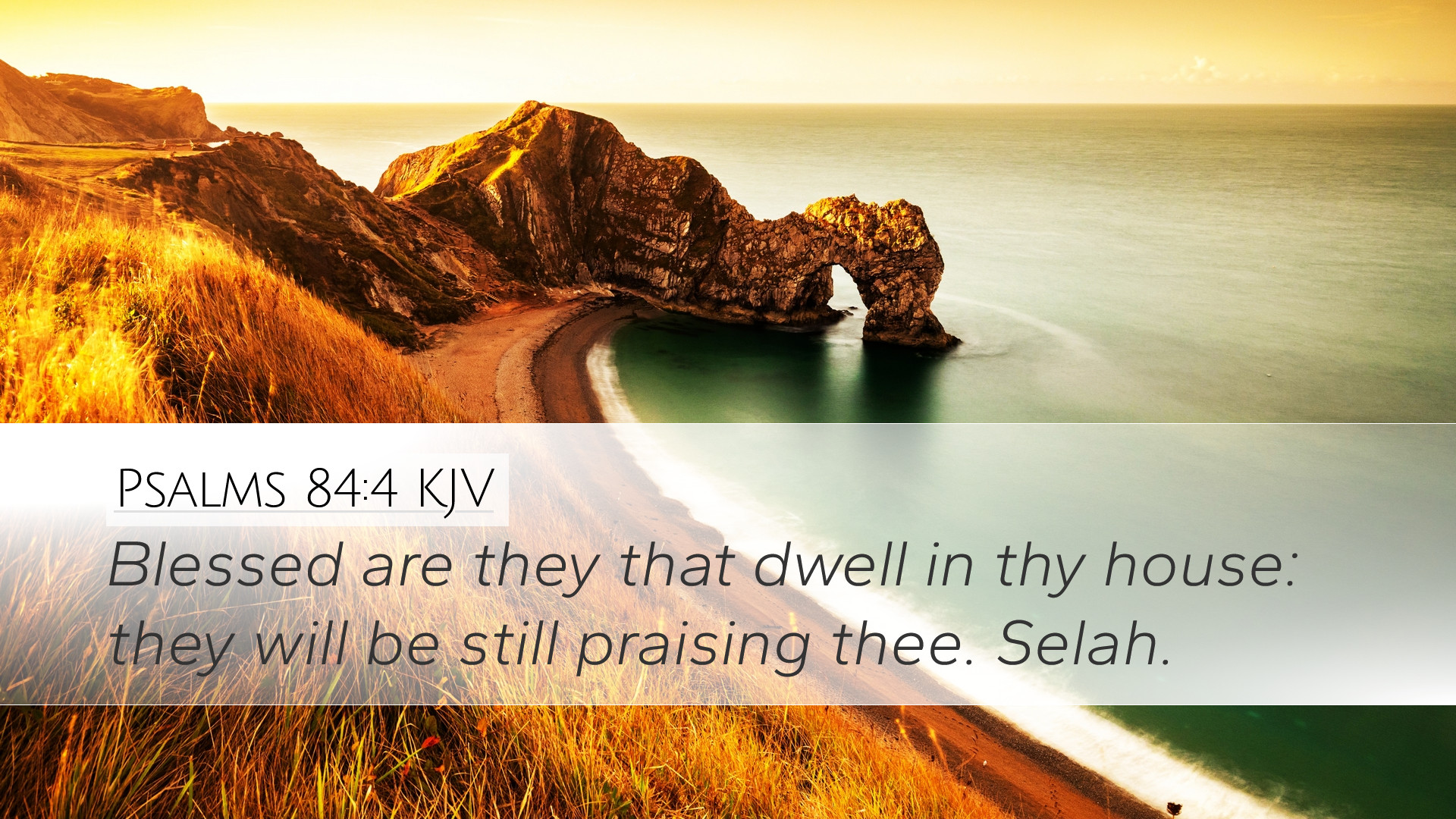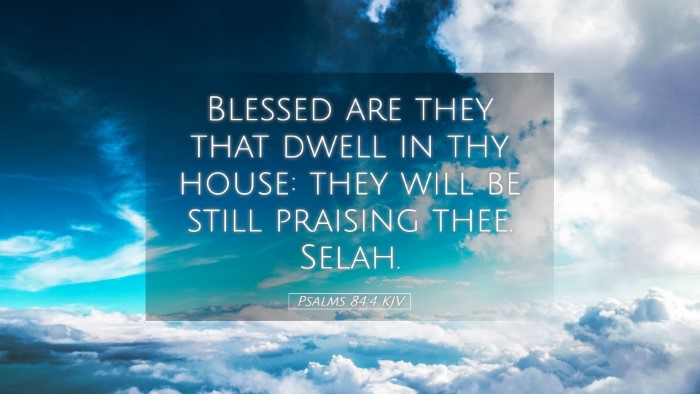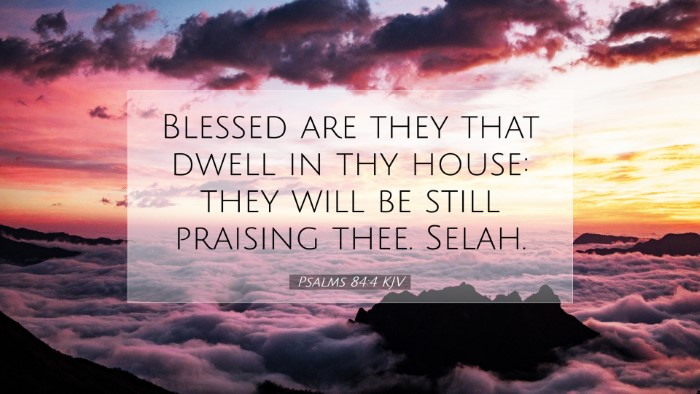Psalms 84:4 Commentary
Verse: “Blessed are they that dwell in thy house: they will be still praising thee. Selah.”
Introduction
This verse from Psalms 84:4 encapsulates the deep longing and joy that the psalmist expresses regarding the presence of God. From the reflections of public domain commentaries, we explore the blessings of dwelling in the house of the Lord, the essence of worship, and the implications for both personal and communal faith.
The Blessings of Dwelling in God’s House
Matthew Henry notes that the blessedness described in this verse emphasizes the joy and happiness found in close communion with God. To dwell in God’s house signifies a permanent dwelling, where one continuously seeks and experiences God’s presence.
Albert Barnes elaborates by stating that the blessedness pertains not only to physical proximity to worship but represents an inner disposition towards God. This verse serves as an invitation to recognize the value of constant connection with God, far beyond mere attendance at a place of worship.
Adam Clarke adds that the term “house” can be understood both literally and metaphorically, suggesting that the house of God represents the temple, the congregation of believers, and even the heart of the individual. This multifaceted interpretation broadens our understanding of dwelling in God’s presence.
The Continuity of Praise
“They will be still praising thee.” This phrase underlines the continuous nature of worship that is inherent when one dwells in God’s house. The psalmist emphasizes that constant praise is a natural outcome of being in God’s presence.
Henry points out that the worshippers in God’s house are driven to praise due to their experiences of grace and mercy. Praise becomes a spontaneous reaction to the blessings received, fostering a culture of worship amongst God’s people.
Barnes explains that worship is vital to the believer’s life, claiming that those who dwell close to God find themselves ever focusing on His character and deeds, leading to unabated thanksgiving and adoration.
Clarke remarks that the “stillness” in this context can suggest a tranquil and peaceful worship experience, where distractions are minimized, allowing deeper engagement with God. It emphasizes meditative praise, presenting a holistic view that worship encompasses more than vocal expression; it includes a heartfelt, internal response.
Theological Implications
This verse serves as a theological anchor that speaks to the nature of God’s relationship with humanity. It articulates God’s desire to dwell among His people, which reflects the broader themes found throughout scripture.
-
God's Desire for Fellowship: The verse reaffirms the biblical principle that God seeks communion with His creation. This truth is echoed in the New Testament as well, particularly in John 15, where Jesus invites believers to abide in Him, emphasizing the significance of an intimate relationship with God.
-
Community and Worship: The communal aspect of worship cannot be overlooked. As the body of Christ gathers to dwell in His presence, the collective impact of praise becomes a powerful testimony to the wider community.
-
Hope and Assurance: The promises inherent in this verse offer both hope and assurance. For the believer, knowing that dwelling in God’s house brings blessing and praise fosters spiritual resilience amidst life’s challenges.
Practical Applications
As we reflect on this verse, several practical applications emerge for pastors, students, theologians, and scholars.
-
Encouraging Worship: It is imperative for church leaders to cultivate an environment where worship is prioritized. This includes not only musical praise but fostering spaces of prayer and teaching, guiding congregants into deeper encounters with God.
-
Teaching on God’s Presence: Educators and students of theology may explore and teach the importance of recognizing God’s omnipresence in everyday life, not just in religious settings. This introduces a more holistic view of worship that transcends the church walls into daily life.
-
Building Community: The insights from this verse encourage believers to engage in community worship, highlighting that collective praise strengthens faith and fosters unity among believers.
-
Personal Reflection: Individuals are encouraged to reflect on their personal relationship with God, considering how they can make their focus on Him a continuous practice, embodying a lifestyle of worship.
Conclusion
Psalms 84:4 serves as a profound reminder of the joy found in dwelling in God’s presence. The insights from Matthew Henry, Albert Barnes, and Adam Clarke enrich our understanding, urging us to embrace the blessings of constant communion with God. As we approach worship with hearts ready to praise, we can experience the peace and fulfillment that comes from being in the house of the Lord.


